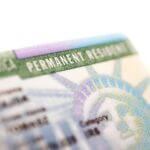Contents
- WHO ELSE IS AFFECTED BY THE PROCESSING DELAYS?
- WHY ARE THESE DELAYS BAD FOR BUSINESS?
- HOW SERIOUS COULD THIS CRISIS BECOME?
- WHAT HAS BEEN THE EFFECT OF THE 2017 EXECUTIVE ORDER?
- DOES CONGRESS HAVE ANY RESPONSIBILITY FOR THE CRISIS?
- IS THERE ANY PLAN TO SPEED UP IMMIGRATION PROCESSING?
- HOW CAN AN IMMIGRATION ATTORNEY HELP YOU?
- WHAT WILL YOU NEED IF YOU DEAL WITH IMMIGRATION AUTHORITIES?
Lengthy processing delays are now standard for every type of immigration case and procedure. Will an experienced Las Vegas immigration lawyer be able to help you?
Keep reading, and you’ll learn more about the processing delays and how those delays may affect you and your family or business. You’ll also find out where you can turn to get reliable legal help with any immigration matter.
In June, the New York Times reported that scores of international students are now begging their U.S. universities for help because the lengthy processing times for work visas are keeping them out of internships and temporary jobs this summer.
WHO ELSE IS AFFECTED BY THE PROCESSING DELAYS?
International students at a number of U.S. universities have lost out on good opportunities because of the visa application backlog, but students are not the only people who are being negatively impacted by unprecedented delays and backlogs in the immigration system.
The truth is that the backlog in the processing of immigration requests and petitions has reached an unprecedented crisis level for workers, businesses, investors, and families as well as students. Processing times are up overall by 91 percent since 2014.
For example, you may now wait up to a year to learn if your petition for an H-1B visa will be approved. U.S.-based employers who seek to hire international workers are waiting eight months or longer for approval of I-140 immigrant visa petitions – which used to take only three months.
WHY ARE THESE DELAYS BAD FOR BUSINESS?
These prolonged waits have important and quite negative consequences. U.S.-based businesses, for instance, can’t meet their goals – and they lose potential profits – when they have to endure extra-long waits for the employment visas that will let them hire the workers they need.
International workers who have managed to obtain visas are now unable to obtain green cards in a timely manner, so many have left the United States to seek better prospects in other nations. And lengthy processing times for work authorizations can mean financial hardships for families.
The immigration courts are also exceedingly backlogged. Immigration judges now handle more than 1,500 cases every year. One immigration judge told PBS that her pending caseload currently consists of more than 4,000 cases.
HOW SERIOUS COULD THIS CRISIS BECOME?
And according to David Bier, an immigration policy analyst at the Cato Institute, if current trends continue, some green card applicants will be waiting for two decades – or even longer – just to obtain their green cards.
Immigration processes have always been slow, but the current crisis has been exacerbated by some of the policies and actions of the Trump Administration. For example, in 2017, the White House issued the “Buy American and Hire American” executive order.
WHAT HAS BEEN THE EFFECT OF THE 2017 EXECUTIVE ORDER?
That executive order purportedly seeks to create higher wages for U.S. workers by strictly administering and enforcing U.S. immigration laws. However, the actual effect of the executive order has been even more and longer delays in a number of immigration processes:
- U.S. Citizenship and Immigration Services (USCIS) now applies the same level of scrutiny to both initial petitions and extension requests for nonimmigrant visa categories. Extensions of stay now require time-consuming, complete re-adjudications.
- USCIS now requires interviews for all employment-based green card applicants. This requirement creates a considerable backlog.
- A substantial increase in the number of requests for evidence (RFEs) by immigration authorities means that USCIS now must adjudicate many more cases twice, essentially doubling the processing times.
- By focusing almost exclusively on enforcement, the administration has had to divert resources needed for the proper adjudication of requests and petitions.
- The suspension of the USCIS “Premium Processing Service” now makes it impossible to expedite processing – even for immigrants who may be in desperate circumstances.
DOES CONGRESS HAVE ANY RESPONSIBILITY FOR THE CRISIS?
In January, the American Immigration Lawyers Association issued a statement which said that “USCIS is failing its congressional mandate and disserving the public,” and in May, thirty-six members of Congress publicly criticized USCIS for its performance.
The backlog has been partially created by the policies of the Trump Administration, but Congress also needs to share the blame for consistently underfunding USCIS. Immigration Judge Dana Leigh Marks tells PBS, “The system does work, when it receives the proper funding.”
USCIS was created in 2002 to help immigrants obtain visas, green cards, and other benefits. The agency also works with U.S.-based businesses to help fill critical personnel gaps. Congress meant for USCIS to streamline immigration and to handle petitions and requests promptly.
IS THERE ANY PLAN TO SPEED UP IMMIGRATION PROCESSING?
All of the numbers, however, are indicating that the processing of petitions and other requests has slowed to an unacceptably slow pace and that quick service is now no longer the agency’s priority. Expect a long delay if you submit any request to USCIS, and especially if you file an:
- I-130 (relative petition)
- I-131 (travel document/advance parole application)
- I-485 (application to register permanent residence or adjust status)
- N-400 (naturalization application)
Is there a way to expedite the processing of your own application, petition, or request? These delays may persist for years to come, although USCIS has told the New York Times that it has “implemented a plan to address this and return to standard processing times soon.”
HOW CAN AN IMMIGRATION ATTORNEY HELP YOU?
Substantial reforms, of course, will have to be put in place, and that cannot be done quickly. For now, having the law on your side and having good legal counsel is the best advice for dealing with any immigration matter.
Have an experienced Las Vegas immigration lawyer review – or help you prepare – a visa petition or any other immigration document. That way, you’ll avoid any unnecessary delays that might be caused by mistakes or misunderstandings regarding your petition or other request.
A good immigration attorney can also help you prepare for meetings and interviews with immigration authorities or represent you if necessary in immigration court.
WHAT WILL YOU NEED IF YOU DEAL WITH IMMIGRATION AUTHORITIES?
Unfortunately, even the best immigration attorney cannot make the system move faster for you. Only the White House, the Congress, and USCIS itself can do that.
But whether it’s a student visa, a work, family, or investor visa, or a green card that you’re seeking, or if you are dealing with USCIS about any other matter, you should have the help of an experienced immigration attorney from the beginning – along with some patience.




